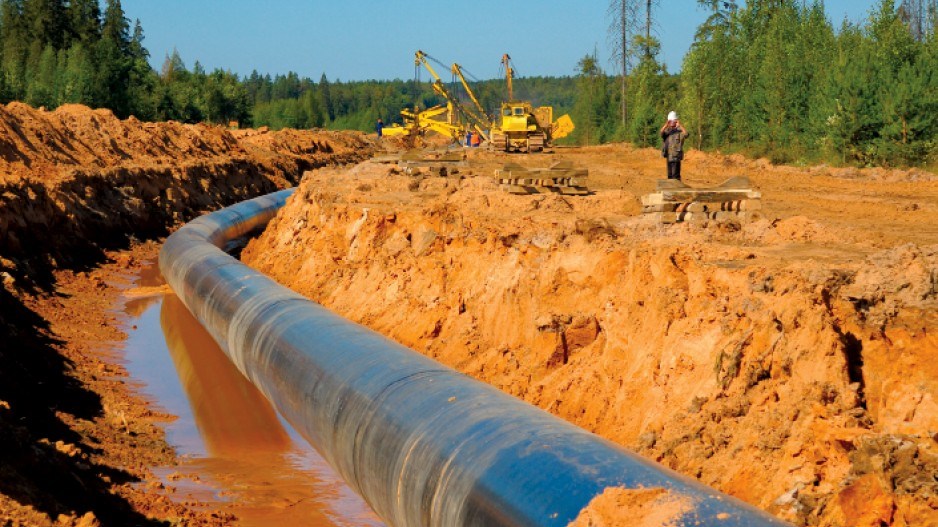If 60% of First Nations along the proposed Northern Gateway Pipeline corridor have signed equity agreements, as Enbridge Inc. (TSX:ENB) claims, they must be all in Alberta, says Grand Chief Stewart Phillip of the Union of BC Indian Chiefs.
And he warns Enbridge and the Stephen Harper government that if Ottawa tries to push the $6 billion project through, First Nations in B.C. will first go to court and then to blockades.
“In the event the joint review panel either supports or rejects the Northern Gateway project proposal, and Prime Minister Harper simply sweeps that aside and endorses it, clearly from that point we’re headed to the courtrooms and that will be a long, protracted legal fight,” Phillip told Business in Vancouver.
“And in the event, miraculously, we move beyond that point, we’ll move on the land itself to defend the environmental integrity of our territories. It’s just not going to happen.”
Even a less contentious pipeline proposal – Kinder Morgan’s $5 billion plan to twin its TransCanada pipeline – is meeting with opposition from First Nations, who generally support natural gas projects in B.C. but not oil pipelines.
Roughly 100 B.C. First Nations have signed the Save the Fraser Declaration. Signatories to the document state they will not permit the Northern Gateway pipeline “or similar Tar Sands projects” to cross their territories, most of which was never ceded through treaties.
Even the Haisla Nation, which signed an economic pact with Rio Tinto Alcan and supports liquid natural gas projects in its territory, is opposed to the Northern Gateway project, which would terminate in Haisla territory – Kitimat – with a marine terminal.
B.C. First Nations got some support from the B.C. government last week, when it stated its position on pipeline proposals in general and the Northern Gateway project in particular.
B.C. has set five conditions it says must be met for the project to receive the B.C. government’s support. For one, it wants a bigger share of the financial benefits of the pipeline. Environment Minister Terry Lake said the 8% share of the economic benefits B.C. would get from the pipeline is not enough, given the province takes most of the environmental risk.
As BIV went to press, the B.C. and Alberta premiers were squaring up over the issue at the premiers’ conference in Halifax, with Christy Clark quoted as saying, “If that’s going to cause such a big problem that there are trade barriers, there is a very easy way to solve that — no pipeline.”
Another of the government’s conditions is that First Nations be properly consulted.
In a recent interview with Business in Vancouver, Janet Holder, executive vice-president of Western Access for Enbridge, insisted 60% of First Nations along the pipeline corridor have signed equity agreements giving them a 10% stake in the pipeline. But the agreements are confidential, she said, and Enbridge refuses to state which First Nations in B.C. have signed the agreements.
Holder said about 50% of the First Nations who signed the agreement are in B.C.
“It’s split 50-50 between the two [provinces],” she said.
But Aboriginal Relations and Reconciliation Minister Mary Polak disputes Enbridge’s claims.
“We’re not aware of any First Nation in British Columbia that has taken a positive supportive position of the Enbridge proposal, at this stage,” Polak said.
Phillip doubts any band council could sign a deal with Enbridge without its constituents finding out, and he doubts any community could get wholesale buy-in.
“In the event that a band council attempted to quietly engage in the Northern Gateway project, before they got home for supper that night, the community would know about it,” Phillip said. •




